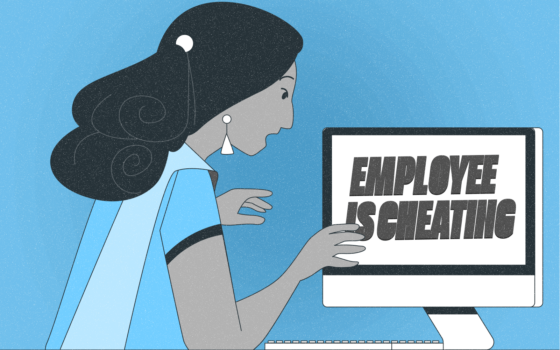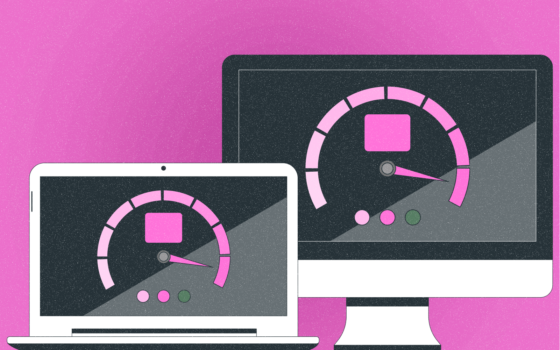University Career Services
Understanding University Career Services
University Career Services play a pivotal role in bridging the gap between academic pursuits and professional aspirations. These departments, often nestled within the heart of college campuses, serve as a beacon of guidance for students navigating the complex landscape of career development. From freshmen just beginning their academic journey to seniors on the cusp of entering the workforce, career services offer a plethora of resources, tools, and expertise to help students make informed decisions about their future.
At its core, University Career Services is more than just a job placement office. It's a comprehensive support system designed to empower students with the skills, knowledge, and confidence needed to thrive in an ever-evolving job market. Whether it's crafting the perfect resume, honing interview skills, or exploring various career paths, these services are instrumental in shaping the professional trajectories of countless individuals.
The Evolution of University Career Services
The concept of career services in higher education has come a long way since its inception. Initially, these offices were primarily focused on job placement, often operating as simple liason between graduating students and potential employers. However, as the job market has become increasingly competitive and complex, the role of career services has expanded dramatically.
Today, University Career Services encompass a wide range of offerings, including career counseling, skills assesment, internship coordination, and networking opportunities. This evolution reflects a growing recognition of the importance of career readiness in higher education. Universities are no longer just places of academic learning; they are also launching pads for successful careers.
Key Components of University Career Services
Career Counseling and Guidance
One of the cornerstones of University Career Services is personalized career counseling. Trained professionals work one-on-one with students to help them explore their interests, skills, and values. This process often involves the use of various assessment tools and techniques to help students gain a clearer understanding of their strengths and potential career paths.
Career counselors can assist students in making important decisions, such as choosing a major, exploring graduate school options, or deciding between multiple job offers. They provide a sounding board for ideas and concerns, offering objective advice and insights based on their expertise and experience.
Resume and Cover Letter Assistance
Crafting a compelling resume and cover letter is often the first step in landing a job or internship. University Career Services typically offer workshops, resources, and individual consultations to help students create professional, polished application materials. This assistance can be invaluable, especially for students who may be creating their first resume or applying for jobs in unfamiliar industries.
Career services professionals stay up-to-date with the latest trends in resume writing and can provide guidance on tailoring application materials to specific industries or positions. They can also help students highlight their unique experiences and skills in a way that resonates with potential employers.
Interview Preparation
The interview process can be daunting, particularly for students with limited professional experience. University Career Services often provide mock interview sessions, where students can practice their interview skills in a low-stakes environment. These sessions may be conducted by career counselors, alumni, or even representatives from partner companies.
In addition to practice interviews, career services may offer workshops on interview techniques, body language, and common interview questions. Some offices even provide resources for virtual interviews, which have become increasingly common in recent years.
Job and Internship Search Support
Finding relevent job and internship opportunities can be a challenging task for students. University Career Services often maintain job boards or databases with curated listings specifically for their students and alumni. These resources can be invaluable in helping students find opportunities that align with their skills and career goals.
Beyond simply providing job listings, career services professionals can offer strategies for effective job searching, including how to leverage online platforms, network effectively, and tailor applications to specific positions. They may also organize job fairs and networking events, bringing employers directly to campus to meet with students.
Networking and Alumni Connections
Building a professional network is crucial for long-term career success. University Career Services often facilitate networking opportunities through various channels. This may include organizing alumni panels, industry-specific networking events, or mentorship programs that connect current students with successful graduates.
Many universities also maintain extensive alumni databases that students can access through career services. These databases can be powerful tools for researching different career paths, finding potential mentors, or even securing job leads.
The Impact of Technology on University Career Services
The digital revolution has significantly transformed the landscape of University Career Services. Technology has not only changed the way these services are delivered but has also expanded their reach and effectiveness. Here are some key ways in which technology is shaping modern career services:
Virtual Career Fairs and Networking Events
With the advent of sophisticated online platforms, many universities now offer virtual career fairs and networking events. These digital gatherings allow students to connect with employers from across the globe, breaking down geographical barriers and expanding opportunities. Virtual events can be particularly beneficial for students who may have limited mobility or those attending online programs.
AI-Powered Career Matching
Some universities are leveraging artificial intelligence to help match students with potential career paths or job opportunities. These AI systems can analyze a student's skills, interests, and experiences to suggest relevant career options or job listings. While not a replacement for human guidance, these tools can provide valuable insights and help students explore options they may not have considered otherwise.
Online Career Assessment Tools
Digital platforms have made it easier than ever for students to access career assessment tools. These online assessments can help students explore their interests, values, and skills, providing a foundation for career exploration and decision-making. Many of these tools offer immediate results and can be accessed at the student's convenience.
Digital Portfolios and Personal Branding
In the age of social media and personal branding, University Career Services are increasingly helping students develop their online presence. This may include guidance on creating professional social media profiles, building digital portfolios, or even developing personal websites to showcase their skills and accomplishments.
Challenges Faced by University Career Services
While University Career Services provide invaluable support to students, they also face several challenges in today's rapidly changing educational and professional landscape:
Keeping Pace with Industry Changes
The job market is evolving at an unprecedented rate, with new industries emerging and traditional roles being redefined. Career services professionals must constantly update their knowledge and resources to provide relevant guidance to students. This requires ongoing professional development and close collaboration with industry partners.
Addressing Diverse Student Needs
Today's student populations are increasingly diverse, with varying backgrounds, experiences, and career aspirations. University Career Services must strive to provide inclusive services that cater to the needs of all students, including international students, non-traditional students, and those from underrepresented backgrounds.
Balancing High-Touch and High-Tech Services
While technology has enhanced many aspects of career services, there's still a need for personalized, face-to-face interactions. Finding the right balance between leveraging technology and providing personalized support can be challenging, especially with limited resources.
Measuring Impact and Outcomes
Demonstrating the value and impact of career services can be difficult. While metrics like job placement rates are important, they don't capture the full scope of career services' impact on students' long-term career development. Developing comprehensive assessment strategies to measure and communicate the value of career services remains an ongoing challenge.
Best Practices in University Career Services
To maximize their impact and effectiveness, many University Career Services departments are adopting innovative approaches and best practices:
Early Engagement
Rather than waiting until students are nearing graduation, many career services offices are now engaging with students early in their academic careers. This early intervention can help students make informed decisions about their majors and start building their professional skills and networks from the outset.
Customized Programming
Recognizing that one size doesn't fit all, many career services offices are developing targeted programming for specific student populations or career paths. This might include specialized workshops for international students, career exploration events for undecided majors, or industry-specific networking opportunities.
Employer Partnerships
Building strong relationships with employers is crucial for creating meaningful opportunities for students. Many career services offices are developing strategic partnerships with companies, inviting them to participate in campus events, contribute to curriculum development, or even co-create internship programs.
Data-Driven Decision Making
Leading career services departments are leveraging data analytics to inform their strategies and improve their services. By tracking student engagement, career outcomes, and industry trends, these offices can continually refine their offerings to better serve students and meet the needs of employers.
The Future of University Career Services
As we look to the future, University Career Services will likely continue to evolve and adapt to meet the changing needs of students and the job market. Some potential trends include:
Increased Focus on Soft Skills Development
With automation and AI reshaping the job market, there's a growing emphasis on uniquely human skills like creativity, critical thinking, and emotional intelligence. Career services may place greater emphasis on helping students develop and articulate these soft skills.
Integration with Academic Programs
There's a growing recognition that career development should be integrated throughout the academic experience, rather than treated as a separate service. We may see more collaboration between career services and academic departments to embed career readiness into the curriculum.
Lifelong Career Support
As career paths become less linear and job changes more frequent, universities may expand their career services to provide ongoing support to alumni throughout their professional lives. This could include access to career counseling, continuing education resources, and networking opportunities long after graduation.
Emphasis on Entrepreneurship and Self-Employment
With the rise of the gig economy and startup culture, career services may place greater emphasis on supporting students interested in entrepreneurship or freelance careers. This could include providing resources on business planning, funding opportunities, and self-employment strategies.
Conclusion
University Career Services play a vital role in preparing students for the complexities of the modern job market. By providing comprehensive support, from career exploration to job search strategies, these departments help bridge the gap between academia and the professional world. As the landscape of work continues to evolve, so too will the role of career services, adapting to meet the changing needs of students and employers alike.
The success of University Career Services ultimately lies in their ability to empower students with the tools, knowledge, and confidence needed to navigate their career journeys. By fostering self-awareness, building professional skills, and facilitating meaningful connections, these services do more than just help students find jobs – they help launch fulfilling careers.
As we move forward, the importance of University Career Services in higher education will likely continue to grow. These departments will play an increasingly crucial role in demonstrating the value of a college education and ensuring that graduates are well-prepared to thrive in an ever-changing professional landscape. By continually innovating and adapting their services, University Career Services will remain an indispensable resource for students as they transition from the classroom to the workplace and beyond.


